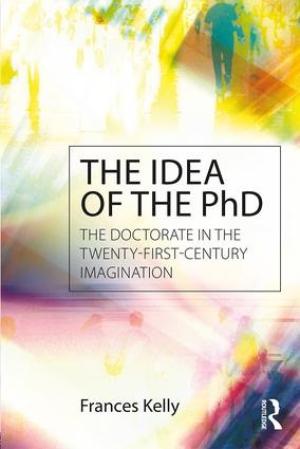Resources by Shivraj K. Mahendra

Studies in higher education seem to have given limited attention to the emotional aspect of the teaching-learning experience. Emotion has, nearly for the greatest part, been isolated from cognition. Underlining this distrust of emotion in academia, How Higher Education Feels, explores the less charted trails of emotional dimensions of teaching and learning. Holding to the hypothesis that emotions cannot be separated from rational engagements, the book attempts to demonstrate how emotion is deeply intertwined with thinking and reasoning in higher education. This book is thus about journeying with, and reflecting upon, the emotional landscapes of courses we teach and students we impact. The first two chapters set the stage and agenda of the book by outlining the need for study of emotions in higher learning, the methodology with which to explore emotional experiences, the significance of poetry in relation to emotions, and the conceptual tools used to examine the role of emotions. A teacher’s regulation of his or her own emotions in the context of student-centered teaching is a key element in the discussion. The next nine chapters each include ten to fifteen poems that address specific themes of experience in university education. Some of the key themes include: transition to higher education, taking care of students and ourselves (teachers), love of people and culture, love of arts and or science, success and failure, and introspection and retrospection. The poems were compiled to serve as case studies expressing and illustrating various feelings in relation to significant aspects of learning, teaching, and development. They are rich in content and language, duly accompanied by brief commentaries as well as a well-researched expert commentary that places the poems in their specific contexts. They are simple and complex, metered and irregular compositions just like the life and moods of many academics. Poems are personal and touching, deep and sensitive, and quite successfully serve the purpose of the book. While the poetry is meant to serve as case studies in emotion and feelings, the book seems to become a compilation of poems rather than a pedagogical discourse. Thankfully the commentaries, especially the expert commentaries, rescue the reader from being lost in the anthology of poems. The theoretical framework is also well conceptualized and the final chapter recaptures the mission of the monograph. It successfully shows the importance of emotion in experiences of higher learning from enrollment to graduation and beyond. It further shows the centrality of emotion and feelings of a student in relationship with subject, with teachers, with peers, and with self – all summed up, in this study, in poetic expressions. As the compiler of this groundbreaking work, Kathleen Quinlan of Oxford Learning Institute, deserves appreciation for pointing attention to an important direction in higher education – the centrality of emotion and its powerful expression in poetry. She has liberated emotion in education from being the sole property of psychology and opened it up, with the help of poetry, for reflection on its socio-cultural contexts. How higher education feels? It feels terrifically poetic!

Understanding the concept, contours, and concerns of Doctor of Philosophy (PhD) studies is the central focus of this book. It explores the world of PhD as it is imagined, experienced, and analyzed in various academic contexts. It unearths the relationship between the PhD of the past and of the present, and argues that there is a tension at the core of the idea of PhD in its twenty-first century understanding. Is the PhD undergoing a radical transformation? Where is it heading? In exploring and responding to these questions, the author, Frances Kelly of the Faculty of Education at the University of Auckland, initiates a needed conversation within higher education. The book consists of four chapters, each examining an aspect of the subject matter in focus: the nature of doctoral research, the idea of the doctoral researcher, PhD pedagogy, and the spaces of doctoral research. The introduction outlines the rationale and agenda of the book and briefly reflects on the themes of the PhD and university in general as they relate to culture, images, and stories. The author also claims the book is about critical analysis of contemporary discourse on the PhD. Chapter 1 reflects on doctoral writing and with the help of illustrations and case studies argues for understanding the process of dissertation writing as work. This is a helpful perspective for graduate students working on or preparing for their dissertation writing. The second chapter explores the person, character, and identity of a “knowledge worker” and highlights five key attributes of the doctoral researcher: (1) specialist knowledge, (2) effective communication, (3) general intellectual skills and capacities, (4) independence, creativity, and learning, and (5) ethical and social understanding (45-46). This chapter contributes an important conversation on the struggle of the researcher in the context of university and society about his or her contribution as a doctoral researcher. Chapter 3 examines the nature and function of doctoral pedagogy in terms of supervision, socialization, and issues of gender, power roles, and their impacts. It begins with the study of the traditional pedagogical practice of private and dyadic supervision and proceeds with the ideas of doctoral pedagogy in groups and voices for the later. The fourth and final chapter takes up the discourse on the spatial realities of doctoral learning, which includes the university campus, the location and design of that campus, library and archives, the writing desk, and the imagined space (location) of the researcher. The significance of each of these in doctoral research are explored within a context of cultural imagination. In her conclusion, Kelly says that the cultural imagery of the PhD is tied to a Western idea and wonders about the nature of non-Western ideas of the PhD. The book is rich in illustrations from a variety of researchers and their experiences with the PhD. However, it does not define or explore the concepts of imagination – Western or non-Western – or social and cultural domains, thus taking them for granted. Some contents of the book may disappoint the experts in the field. Yet it will make a helpful tool, especially for the emerging scholars of higher education.